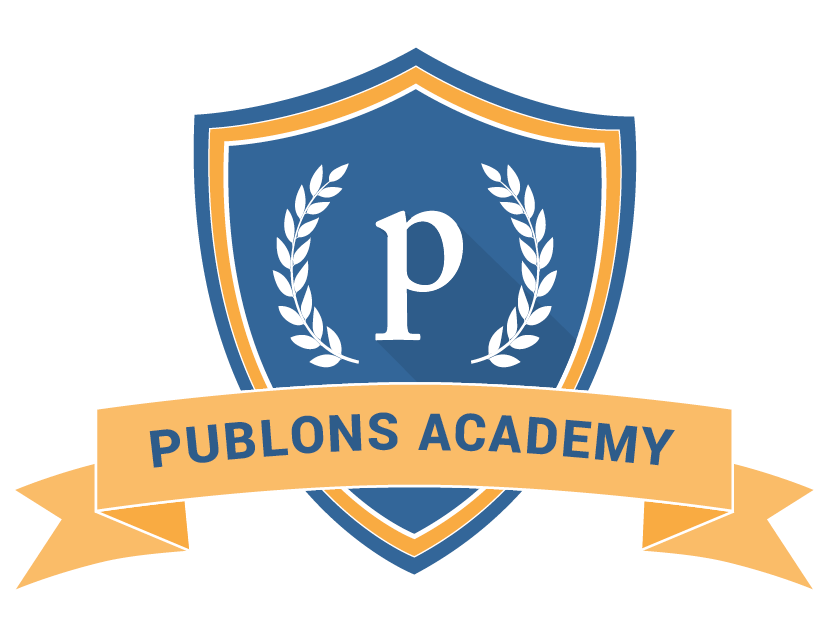Publons Academy

Peer review training: The missing link to fulfilling researcher potential
The problem with peer review training today
Peer review training today mostly comes in two formats:
- An in-person workshop – where researchers are talked at by a selection of senior researchers and journal editors.
- Clandestine sharing of review assignments by senior researchers with their junior colleagues.
These approaches are littered with flaws, ranging from the fragmented, impractical and costly nature of in-person workshops, to the ethically fraught sharing of confidential review assignments by senior researchers wanting to provide junior colleagues with a learning opportunity (or simply delegate unwanted work).
Importantly, none of this actually gets people reviewing, leaving the next generation of experts missing out on the significant benefits of reviewing until later in their careers. It also leaves editors struggling to find reviewers. This slows down scholarly communication and leaves a glaring hole in the researcher development programs intended to support up-and-coming experts.
The mandate for peer review training
The growing requirement for institutions to provide researchers with training and development support is clear.The European Charter for Researchers and Code of Conduct for the Recruitment of Researchers (2005), the UK Concordat to Support the Career Development of Researchers (2008) and Horizon 2020 all place firm emphasis on strengthening researcher development and careers. These policy initiatives are echoed around the world and institutions are getting on board. Unfortunately, peer review training is missing from the majority of institutional development programs.
Proper peer review training must be provided if institutions want researchers and the scientific enterprise to succeed. Researchers are called upon to perform hundreds, if not thousands of reviews throughout their career. It is also at the heart of research quality, integrity and communication - defending against the spread of false or misleading research whilst helping reveal the breakthrough discoveries of tomorrow.
The missing link: Training that gets experts reviewing
Being an active peer reviewer is a phenomenal asset. You learn about the publishing process, stay abreast of the latest research, develop relationships with editors, improve your writing and critical analysis skills and build evidence of your standing and contributions in your field for promotion and funding applications.
Unfortunately, early-career researchers struggle to connect with journal editors to demonstrate their subject-matter expertise and break into the pool of reviewers reaping the benefits. Why? Because today’s training does nothing to connect researchers with editors or get them reviewing.
This is a huge problem for journal editors too. With increasing submissions the current reviewer pool is significantly overburdened. Mountains of manuscripts combined with a stagnant pool of willing and able reviewers is slowing down science and placing peer review quality under enormous stress. Editors urgently want to connect with and recruit early-career researchers into their reviewer pools to help deliver vetted research to the world faster.

Turning the page on peer review training: The Publons Academy
The Publons Academy, an innovative new online training program developed by Publons:
-
provides researchers with the tools needed to confidently break into the world of peer review and demonstrate their expertise
-
helps institutions enhance their development programs and provide researchers with the support needed; and
-
connects journal editors with the next generation of subject-matter experts desperately needed to scrutinise research and deliver it to the world.
The Academy is an on-demand course, designed together with world renowned researchers, peer reviewers, journal editors and Nobel Laureates. Uniquely, participants practice writing actual reviews of papers published in their field. Trainees can invite their supervisor to mentor them through the course and to endorse their skills upon graduation.
All of this activity becomes visible on graduates’ Publons reviewer profiles and is made available to thousands of journal editors on Publons looking for new reviewers to recruit. Now fledgling researchers can develop the skills and confidence needed to break into the world of peer review and further demonstrate their expertise to the world.
Publons offers a Partner version of the Academy to institutions on a yearly subscription basis, including:
- A fully co-branded Academy interface
- Unlimited access to all Academy course materials and updates for your researchers
- Progress reports for your institution
- Marketing and user support
- Printable certificates for your graduates.

To learn more about offering the Publons Academy to your researchers, contact: academy@publons.com or visit publons.com/academy






